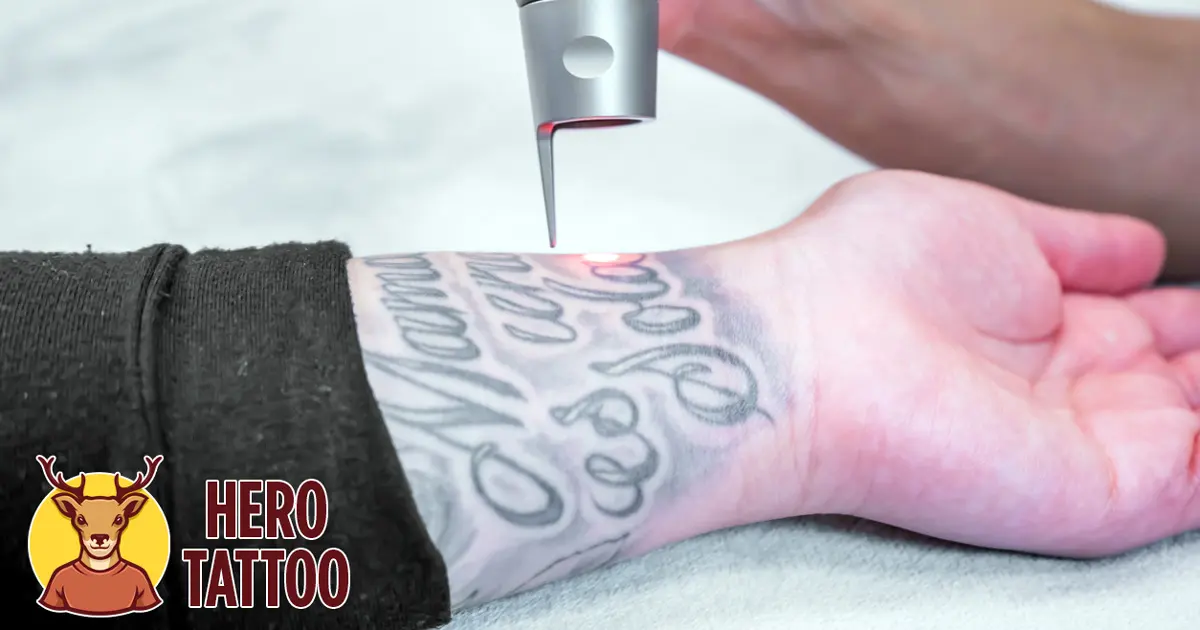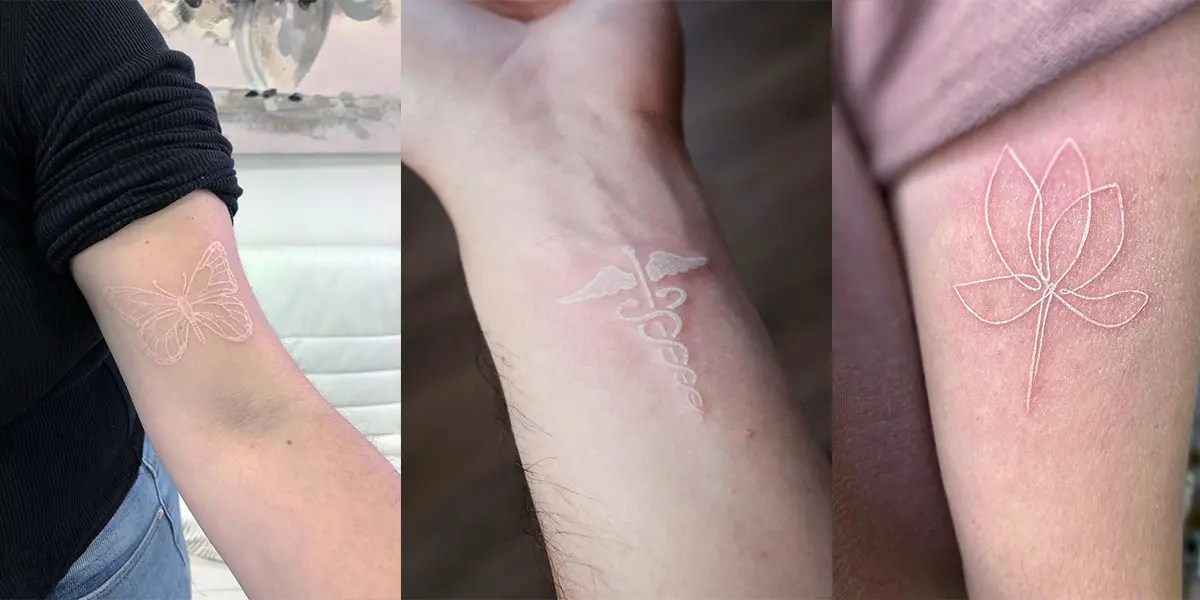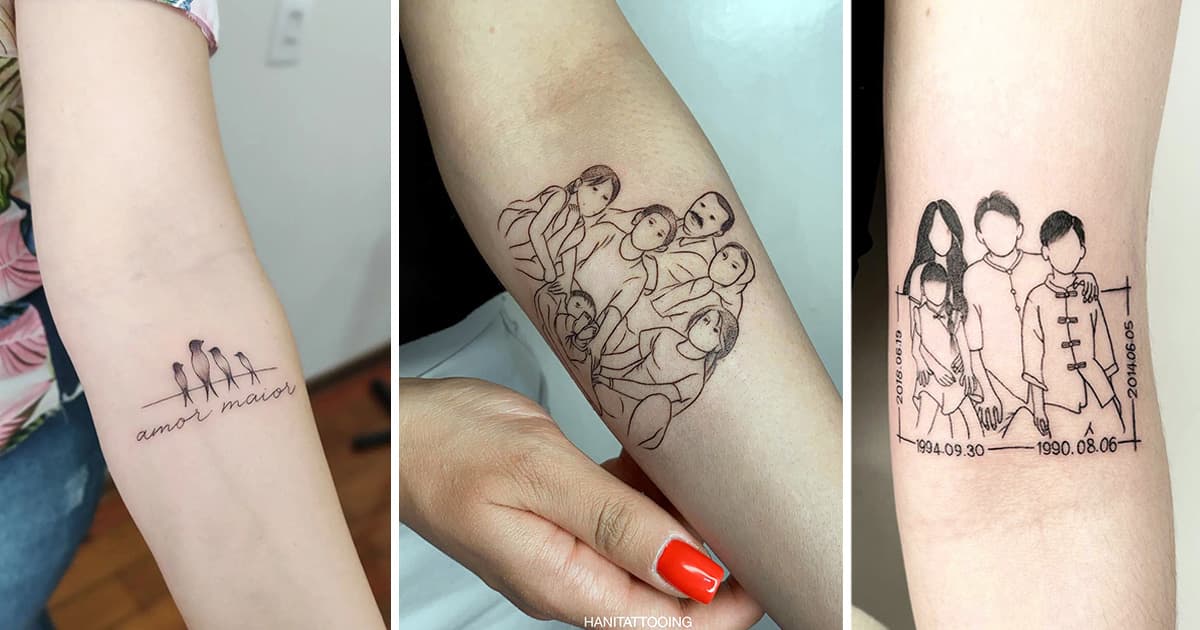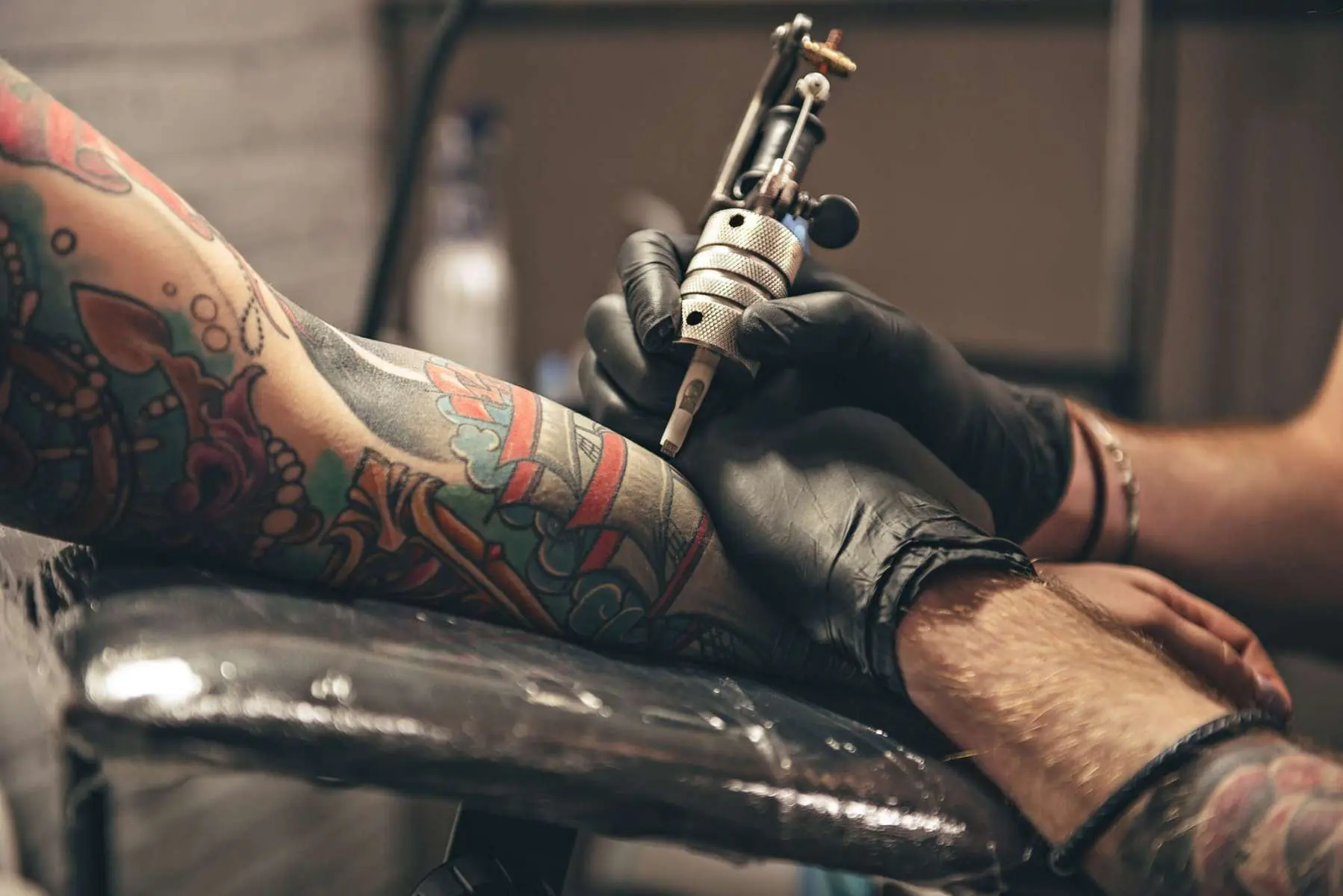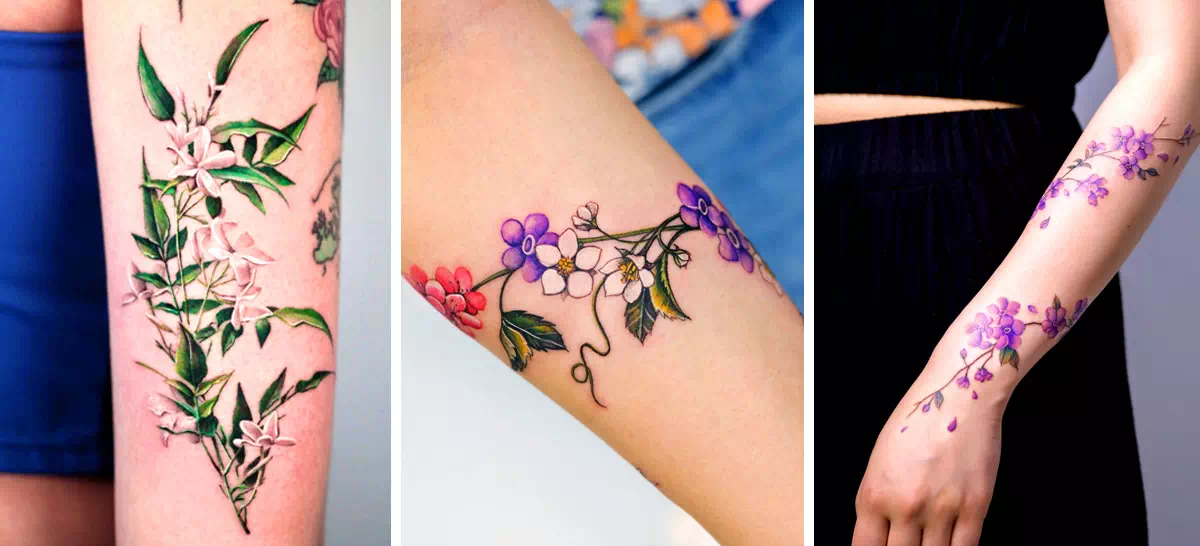No one tells you before getting a tattoo that you might not like it. Post-tattoo remorse is as genuine as it gets, and it’s something that many people have gone through. Your design and appearance expectations may not always be met by the final product. As a result, you’re stuck with a horrible tattoo, and there’s little you can do about it. As far as we can tell, you have three choices:
Option 1:
- Put up with the lousy tattoo.
- Accept it.
- I hope that your future tattoo will make up for it.
Option 2: Removing tattoos with lasers is often costly, time-consuming, and uncomfortable.
Option 3: Lighten or fade the tattoo and try to cover it up with a new, more attractive design.
If you’re reading this, you’re probably considering the third choice. And we’re ready to help. When done by specialists, covering up an old tattoo with a new one is generally successful. However, you may need to lighten or fade your current tattoo to receive a new design.
So, if you’re looking for some DIY tattoo fading tips that are both natural and painless, you’ve come to the perfect spot. We’ll go through all of your options in the following paragraphs, so let’s get started!
Natural Tattoo Fading: Step-by-Step Instructions
The Effects of Sunshine
This is a dubious option right now. Because sunlight equals harmful UV rays, it is not recommended that we expose our skin to the sun without sufficient protection, such as sunscreen. Sunburns can accelerate the development of skin cancer, premature aging, and general skin damage caused by these rays.
Furthermore, tattooed people are strongly urged to use sunscreen to protect their tattoos. Tattoos fade prematurely in the presence of sunshine and sun exposure, which is a common problem (if you like your tattoos).
So, what are your options? The following is what we would suggest:
- If you want your tattoo to fade naturally and soon, don’t use sunscreen on it. The remaining exposed skin, on the other hand, must be protected. So, besides the tattooed area, make sure to apply sunscreen to the rest of the exposed skin. However, do not overexpose yourself to the sun; you do not want to burn or cause further skin damage.
Black tattoos will fade visibly if exposed to sunshine. Fading may be more difficult with tattoos that use yellow, green, or purple ink.
The use of lemon juice
Lemons, or lemon juice, are a natural lightening agent applied to the skin. Some cultures even employ lemon juice to lighten or correct skin pigmentation concerns. Even though this approach may be troublesome in terms of race, it is appropriate for tattoo lightening.
The bleaching impact of lemon juice on tattoos, on the other hand, is purely anecdotal. Some people add lime juice, glycolic acid, and hydrogen peroxide to boost the benefits, although we don’t know how beneficial or safe these products are.
So, what are your options? The safest technique for lightening tattoos with lemon juice is to
Squeeze the juice from a lemon or lime. Apply the freshly squeezed juice to the tattoo 2 to 3 times per day. It would help if you observed some light fading of the tattoo after about a month of doing this. Unfortunately, this treatment works best on black tattoos, causing them to turn pale brown. The approach will almost certainly be ineffective on yellow, green, and blue tattoos.
Using Hydrogen Peroxide and Sugar Scrubs
Exfoliation is an excellent way to remove dead skin cells and extra skin. Many people believe that exfoliating can help with natural tattoo fading. On the other hand, sugar or salt scrubs can’t accomplish much on their own because they don’t penetrate the skin layer, or dermis, to be more specific.
So, how do you use sugar or salt scrubs most effectively?
The ideal technique is to use a body scrub to exfoliate the skin and leave it clean and distraction-free. Allow the sugar or salt to work for at least 5 to 10 minutes without being too harsh on the skin. Then, using a cotton swab, dab a dab of hydrogen peroxide onto the tattoo.
To be sure, you won’t see any benefits right away. This procedure takes at least a month of repetition. During this time, avoid exfoliating your skin because it may be detrimental. You risk causing severe inflammation by causing too much harm to the skin. You could potentially remove the skin’s natural barrier and draw blood.
Getting help from professionals
Now, the best technique for lightening a tattoo is to seek expert help. Professionals are called that for a reason; they have been educated and have the necessary skills to deliver results while causing no harm or injury to your skin. As a result, we recommend scheduling an appointment with a professional tattoo removal service in your area.
Your tattoo, as well as your skin, will be examined there. The tattoo removal treatments will then reach the ink in the skin’s dermis. Furthermore, they will not result in any allergic reactions, skin damage, or scars (like the previous methods might do).
For certain people, the prior procedures aren’t feasible. Furthermore, they do not reach the inner layers of the skin where the ink is applied. As a result, the effectiveness is further reduced. So, the best thing you can do is consult a professional and get your tattoo safely lightened.
Here are some of the reasons why laser tattoo removal is the most effective method for properly fading a tattoo:
- It is quick, safe, and efficient in general.
- To get rid of the ink, it uses your immune system.
- It only takes up to five sessions because you’re merely fading the tattoo rather than eliminating it.
- Because there is no skin damage, the tattoo artist will have an easier time creating a fresh cover-up tattoo.
Other Factors That Could Contribute to Tattoo Fading (But Shouldn’t Be Used)
The following causes of tattoo fading may go unnoticed. However, they induce premature tattoo fading. Even if they aren’t advised as a tattoo lightening treatment, they should be avoided at all costs if you don’t want your tattoo to fade away faster than it would naturally.
- Tanning , tanning beds should be avoided. UV rays are more concentrated on them than in actual sunshine. As a result, they may hasten the onset of skin cancer. Tattoo fading is also accelerated and uneven in tanning beds.
- Friction – If your tattoo is in a high-friction location on your body, it will most likely fade considerably more quickly than it would otherwise. In skin-to-skin or skin-to-fabric friction, high friction build-up causes fading.
- Failure to follow the aftercare instructions: If you do not follow the aftercare instructions, your tattoo may not heal properly, appearing faded and light even though it is new ink. Unless you despise your tattoo, you should stick to the aftercare instructions and avoid potential problems like infections.
- Tobacco use: Smoking, as hazardous as it is, is also proven to harm the health of your skin. It produces considerable changes in the skin, particularly in terms of pigmentation. Smoking lowers collagen formation, resulting in skin elasticity and color loss. For people who have tattoos, this can cause substantial damage to the ink and its brilliant hues.
Should You Take a Do-It-Yourself Approach?
The procedures listed above have not been studied and are not suggested by experts. The only approach that has been established is laser removal, which requires experts with extensive training and knowledge of the skin and tattoos.
On the other hand, other methods are based on anecdotal evidence, as is their efficacy. Not to mention that they might cause skin irritation and even bleeding. Excessive cleaning and exfoliating can remove the outer layer of the skin, leaving it more sensitive to infection. Furthermore, the skin damage may make the subsequent tattooing process more difficult and uncomfortable.
Last Thoughts
So, when it comes to tattoo fading, we recommend going to a professional and allowing them to carefully and safely treat your tattoo. Other methods may appear enticing since they are inexpensive and employ substances almost everyone has on hand. However, in their unprocessed form, they may be detrimental to your skin, mainly if used frequently.
If you insist on going the DIY route, we recommend seeing a dermatologist and allowing them to at least assess your skin’s condition. Talk to them about these options and determine which one is most effective while remaining minimally invasive and hazardous.
